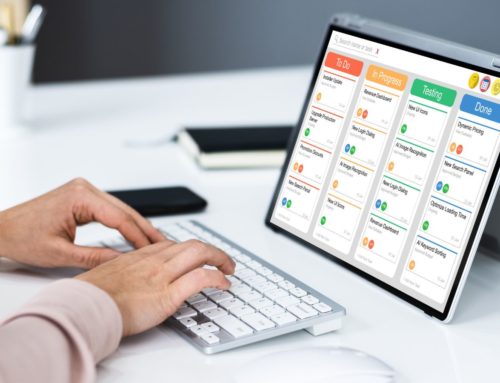Peer coaching has emerged as a powerful tool in professional development, providing individuals with development support, learning feedback, and an avenue for growth. In this article, we will delve into the world of peer coaching, exploring its fundamental aspects, benefits, strategies, and challenges. By understanding how peer coaching works and its impact on performance improvement, you can harness its potential to enhance your leadership skills, build effective relationships, and foster a collaborative work environment.
What is Peer Coaching?
Peer coaching is an empowering and collaborative approach that harnesses the power of shared experiences and mutual support to facilitate personal and professional growth. It involves individuals with similar backgrounds, roles, or experiences coming together to offer guidance, advice, feedback, and encouragement to one another. In the context of recovery, peer coaching holds particular significance as individuals who have successfully navigated the challenges of addiction offer support and insights to those on a similar path.
At its core, peer coaching is built on the foundation of equality and partnership. Unlike traditional coaching relationships and mentoring, where there may be a power imbalance between coach and coachee, peer coaching thrives on the concept of peers supporting peers. This creates an environment of trust, understanding, and empathy, as individuals who have faced similar struggles can relate to and validate each other’s experiences.
One of the defining features of peer coaching is the use of lived experience. Peer coaches draw upon their own personal journeys of recovery, including the obstacles they have overcome and the strategies they have employed. By sharing their stories, peers offer a unique perspective and are able to reach coachees in more relatable ways. This authenticity and relatability foster a sense of hope and inspiration among those receiving coaching, as they witness the transformation and growth of their peers.
Peer coaching also extends beyond traditional coaching relationships by emphasizing the importance of reciprocity. In peer coaching, the dynamics are different as both the coach and coachee have the opportunity to learn and grow. While the coachee receives support and guidance, the act of coaching itself enables the peer coach to reinforce their own recovery journey, strengthen their skills, and solidify their commitment to ongoing personal growth.
The collaborative nature of peer coaching encourages active engagement and shared responsibility. It is not a one-way transfer of knowledge, but rather a dynamic and interactive process. Peers engage in open and honest conversations, actively listening to each other’s concerns, challenges, and aspirations. This creates a safe space for vulnerability and growth, fostering a sense of belonging and connection within the recovery community.
How Does Peer Coaching Work?
Peer coaching is a dynamic process that leverages shared experiences and mutual support to facilitate personal growth in the recovery journey. Here’s a brief overview of how it works:
- Building Supportive Relationships: Peer coaching establishes a foundation of trust, respect, and confidentiality, creating a safe space for open communication and vulnerability.
- Active Listening and Empathy: Peer coaches actively listen and provide empathetic support, validating the coachee’s experiences and emotions.
- Sharing Insights: Peer coaches draw upon their own recovery journeys to offer practical insights, tools, and strategies that have worked for them.
- Setting Recovery Goals: Coaches and coachees collaboratively define specific recovery goals that align with the coachee’s aspirations and values.
- Exploring Challenges and Solutions: Peer coaching sessions involve discussing challenges, exploring potential solutions, and sharing coping strategies and resources.
- Encouragement and Accountability: Peer coaches offer encouragement, celebrate successes, and hold the coachee accountable for their commitments and progress.
- Continuous Learning and Reflection: Peer coaching promotes continuous learning, self-reflection, and ongoing growth for both the coach and coachee.
Research on Peer Coaching
Research, including a study highlighted in a Harvard Business Review article, reveals the substantial benefits of small-group coaching in comparison to one-on-one coaching. The insights gained from the article emphasize the unique advantages of engaging with peers in a facilitated coaching process. Here’s a closer look at the key findings:
Immersion in Real-Time Group Dynamics: In one-on-one coaching, the coach may not witness how individuals interact with others. However, small-group coaching allows both the coach and group members to observe and experience the coachee’s behaviors in a group setting. This enables deeper insights into how the coachee engages with their team and how their actions impact group dynamics.
Insight into Diverse Perspectives: Well-designed small coaching groups consist of individuals with distinct personalities, experiences, and goals. This diversity provides opportunities for coachees to gain insights from varying perspectives and challenges. Comparing oneself to others in the group allows for a better understanding of strengths and blind spots, contributing to personal growth.
Opportunities for Skill Practice in a Safe Space: The small coaching group serves as a supportive environment for coachees to practice essential leadership skills, such as active listening, vulnerability, asking insightful questions, giving and receiving feedback, and helping others find their own solutions. These skills directly relate to the coachee’s learning objectives and enhance their ability to coach, motivate, and develop people.
Robust Accountability System: Obtaining honest and direct feedback at work can be challenging for leaders. In a small coaching group with a foundation of psychological safety, coachees receive regular input on their progress. By openly sharing goals and action plans and engaging in regular check-ins, coachees benefit from the accountability provided by group members. The social forces operating within coaching groups have a more powerful impact on individuals than working with a coach alone.
An Enduring Support Network: Small coaching groups often develop a foundation of trust and openness over time. This creates a support network for coachees, addressing feelings of isolation that senior leaders may experience. Group members become a source of support and valuable insight, extending beyond the formal coaching process and fostering connections in both professional and personal spheres.
To fully realize the benefits of small-group coaching, it is essential to establish key foundations early on. These include nurturing a climate of trust and support, maintaining a collaborative attitude, actively listening, providing direct feedback, being generous in handling strong emotions, and embracing vulnerability to explore challenges and engage in courageous conversations.
Benefits of Peer Coaching
Peer coaching offers a multitude of benefits to individuals and organizations alike. Firstly, it promotes self-awareness and reflection, enabling participants to gain fresh perspectives and identify areas for growth. Additionally, peer coaching fosters a sense of belonging and camaraderie, enhancing teamwork and collaboration. Moreover, it strengthens communication skills, deepens knowledge sharing, and creates a supportive environment that nurtures talent and boosts motivation.
A Typical Peer Coaching Session
A typical peer coaching session follows a structured framework designed to facilitate meaningful discussions, goal-setting, and progress in the recovery journey. Here’s an expanded look at what a typical peer coaching session may entail:
- Setting the Stage: The session begins with both the coach and coachee establishing a comfortable and safe environment for open dialogue. They reaffirm the commitment to confidentiality, respect, and non-judgment, creating a space where the coachee feels secure to share their thoughts and experiences.
- Opening Reflection: The session may start with a brief reflection or check-in where the coachee has the opportunity to share any updates, progress, challenges, or insights since the previous session. This reflection sets the tone for the conversation and provides a starting point for exploration.
- Goal Setting: The coach and coachee collaboratively review or set specific recovery goals for the session. These goals are based on the coachee’s aspirations, challenges, and areas they wish to focus on during the session. The goals provide a clear direction and framework for the coaching conversation.
- Active Listening and Exploration: The coach actively listens to the coachee’s experiences, concerns, and aspirations without interruption or judgment. They ask thought-provoking questions, encouraging the coachee to reflect deeper and gain insights into their recovery journey. The coach helps the coachee explore challenges, identify patterns, and uncover potential solutions.
- Empathetic Feedback and Support: Throughout the session, the coach provides empathetic feedback, validating the coachee’s emotions and experiences. They offer encouragement, highlighting the coachee’s strengths and progress. The coach may also share relevant personal experiences or stories to further support the coachee’s growth and understanding.
- Action Planning: Together, the coach and coachee develop an action plan based on the insights gained during the session. They identify specific steps, strategies, and resources that the coachee can implement to progress towards their recovery goals. The action plan serves as a roadmap for the coachee’s ongoing efforts between sessions.
- Accountability and Follow-up: To foster accountability, the coach and coachee establish methods to track progress and stay connected between sessions. They may define specific milestones or tasks for the coachee to complete and agree on follow-up actions or check-ins to monitor progress. This accountability mechanism supports the coachee’s commitment to their recovery journey.
- Closing Reflection and Celebration: The session concludes with a reflection on the insights gained and progress made. The coach and coachee celebrate the coachee’s achievements, no matter how small, reinforcing a positive mindset and motivation. They express gratitude for the shared experience and reinforce the ongoing support and partnership in the recovery journey.
Peer Coaching for Performance Improvement
Peer coaching plays a pivotal role in improving individual and team performance. By offering unbiased observations and feedback, peers can identify blind spots, and find new problem solving approaches. This constructive input stimulates growth, encourages continuous learning, and aids in overcoming challenges. Peer coaching also cultivates a culture of accountability, as participants actively support and challenge each other to achieve their goals.
Skills Developed Through Peer Coaching
Peer coaching provides a platform for developing a diverse range of skills. Communication skills are honed through active listening, effective questioning, and providing constructive feedback. Relationship-building skills are enhanced as participants foster trust, empathy, and mutual respect. Moreover, critical thinking, problem-solving, and self-reflection skills are sharpened through the collaborative exploration of challenges and potential solutions.
Effective Peer Coaching Techniques
Effective peer coaching relies on specific techniques that foster growth and meaningful conversations. Here are key techniques for successful peer coaching:
- Active Listening: Coaches engage in attentive and non-judgmental listening, giving their full presence to the coachee.
- Powerful Questioning: Thought-provoking questions encourage reflection and new perspectives.
- Empathetic Feedback: Coaches provide constructive feedback that acknowledges the coachee’s efforts and highlights areas of improvement.
- Goal Setting and Action Planning: Coaches collaborate with the coachee to set clear goals and develop actionable steps.
- Strength-Based Approaches: Coaches focus on the coachee’s existing strengths, fostering confidence and resilience.
- Encouragement and Motivation: Coaches consistently support and celebrate the coachee’s progress and efforts.
- Ongoing Learning and Development: Coaches continuously enhance their skills through learning and staying updated.
Building Relationships through Peer Coaching
Peer coaching is an excellent opportunity to build strong and supportive relationships. Regular interactions foster a sense of connection and camaraderie among peers. The exchange of ideas, feedback, and support cultivates an environment of trust and collaboration. These relationships extend beyond coaching sessions, creating a network of colleagues who can provide ongoing support, guidance, and mentorship.
Challenges Associated with Peer Coaching
While peer coaching offers numerous benefits, it is not without challenges. Time constraints and conflicting priorities can hinder the commitment to regular coaching sessions. Differing personalities, communication styles, or conflicting agendas may impact the effectiveness of the coaching relationship. Additionally, maintaining confidentiality and ensuring unbiased feedback can be challenging. Acknowledging these challenges and proactively addressing them can help overcome potential hurdles.
In spite of these challenges, peer coaching is a powerful approach that empowers individuals to unlock their potential, enhance performance, and foster positive relationships. By embracing the principles, strategies, and techniques of peer coaching, professionals can tap into the collective wisdom and experience of their peers, creating a collaborative and growth-oriented work environment. Through ongoing learning, feedback, and support, peer coaching can drive personal and professional growth, leading to greater success and fulfillment in the professional journey.
Join our Recovery Circle! Sign up for our Peer Support and Addiction Recovery Newsletter
Get free info on peer research, work in the field, events, and stories of hope and recovery.
Get Support


Author: Ventus Rex
Posted/Updated on July 13, 2023





